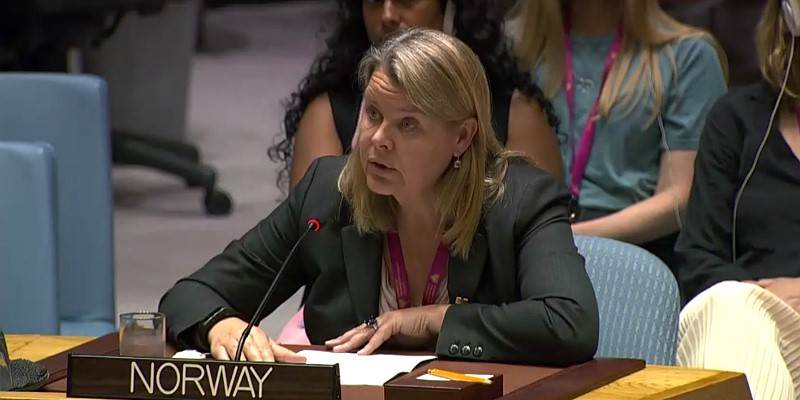I deliver this statement on behalf of Denmark, Finland, Iceland, Sweden and my own country, Norway.
President,
Improving the Security Council’s working methods enhances the council’s ability to take meaningful action in an efficient, results-oriented and accountable way.
We commend Kuwait’s efforts in chairing the Informal Working Group on Documentation to this end. We welcome progress achieved and support the initiatives taken to ensure the full implementation of revised Note 507.
Permanent and elected members share Charter obligations to maintain international peace and security. They should have equal means to shoulder this responsibility. That includes a balanced division of labor in areas such as penholdership and chairing of subsidiary bodies. Better inclusion of newly elected members into the Council’s affairs is also important.
The Office of the Ombudsperson is central in safeguarding due process. The Nordic countries urge the Secretary-General to ensure that the capacity of the Office is strengthened. Necessary arrangements must be made “to ensure its continued ability to carry out its mandate in an independent, effective and timely manner”, as stated in resolution 2368 (from 2017). We also recommend that the Council consider creating an Ombudsperson for other sanctions regimes.
The Nordic countries would also like to acknowledge the valuable role of the Security Council Report. Each year, Finland has arranged a Hitting the Ground Running retreat for the Council and the newly elected members, in close cooperation with the Security Council Report and Professor Ed Luck from Columbia University. The informal discussions have proven useful and important.
President,
The past few years, it has been made abundantly clear that the continued use of the veto, or the threat of its use, gravely hampers the Council’s ability to respond to global crises. Therefore, the Nordic countries strongly support all measures to limit the use of the veto. That includes the ACT group’s Code of Conduct against mass atrocity crimes, as well as the French-Mexican initiative to restrain the use of the veto. We encourage member states that have not yet supported these initiatives to do so without delay.
President,
We recall that article 24 of the Charter enshrines the Council’s responsibility to act on behalf of the entire United Nations membership. We call for broader engagement in that regard. The Council should also find a role in the decision-making process for concerned states on issues discussed by the Council. They should also be involved in informal consultations, in accordance with article 31 of the Charter. Interaction with the broader membership should be improved and enhanced. The Council needs to talk with countries, not only about them.
The Council must also be open to voices from outside of this Chamber. The practice of inviting civil society briefers should be maintained, in order for the Council to broaden its understanding of the issues on the agenda.
The Council should also improve its ability to address problems at all stages of a conflict cycle. More attention needs to be given to the prevention of conflict. Informal situational awareness briefings by the Secretariat is a format that should be fully utilized. Recent progress regarding the role of the Peacebuilding Commission as an advisory body to the Council should be harnessed and developed further.
President,
A relevant and strong UN requires an efficient, transparent and inclusive Security Council to meet today’s challenges to international peace and security, and to improve global governance.
I can assure you of the Nordic countries’ full support in the important work of improving the working methods of this Council.
Thank you.
